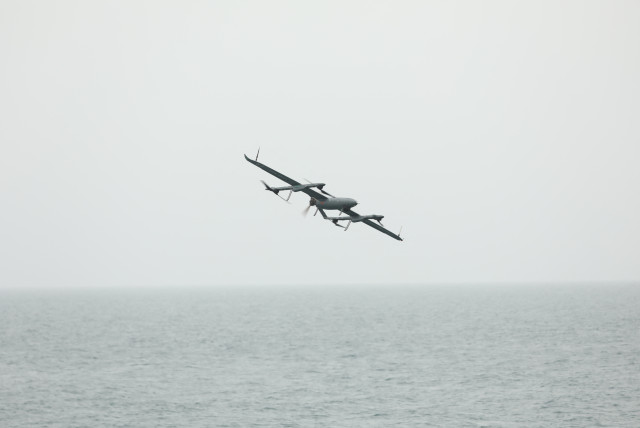US sanctions Iran drone program, again - analysis

These sanctions join a large number of other sanctions that seem to target the drone network.
The US on Wednesday imposed a new round of sanctions on companies and networks linked to Iran’s drone program. The new sanctions by the Treasury Department target companies that import drone components, including from China, Radio Free Europe reported.
The sanctions join a long list targeting the drone network. Iran has supplied drones to Russia, which led to a spotlight on its manufacturing and exportation. Iran imports items from all over the world for its drone program, often through complex and clandestine means.
Some of the sanctions are linked to organizations that have been sanctioned in the past. For instance, the “Pardazan System Namad Arman (PASNA) and six entities [were sanctioned],” the report said. “PASNA itself has already been designated for sanctions by the department’s Office of Foreign Assets Control (OFAC),” the report said.
Nevertheless, this latest round targets the head of PASNA, accusing him of being responsible for the company’s efforts to evade sanctions; the organization has sought electronic components from China.
“OFAC said it added to its list of designated entities four Chinese suppliers – Jotrin Electronics, Arttronix International, Vohom Technology, and Yinke Electronics. The latter three are based in Hong Kong,” the report said.What this round of sanctions reveals is how complex it is to track Iran’s drone program, which spans the globe.
Various entities acquire all sorts of small parts that are not necessarily obviously linked to drones.
Iran evades sanctions by acquiring parts such as encoder boards, remote controls and optical technology.
“The network sanctioned today has procured goods and technology for the Iranian government and its defense industry and [drone] program,” said Brian Nelson, the US Department of the Treasury’s under secretary for terrorism and financial intelligence.
Last November, the Treasury Department sanctioned individuals involved in the production and transfer of drones to Russia. In January, it sanctioned a drone maker, and in February and March, more sanctions were issued, with a report from December noting how the US was scrambling to stop the Iran drone supply to Russia.
A list of the sanctioned groups, companies, people and entities was compiled by the US Institute of Peace last September. The first rounds of sanctions focused on companies, followed by those involved in the export of drones.
Then it shifted to the Russian entities that procure the drones and finally to the firm linked to exports.
The next group to be sanctioned was people on the board of firms linked to the program, then back toward companies and links to China.
On the one hand, the long list of people and companies involved shows how large the Iran drone program is and how it conspires to import items for the drones and then export the drones to Russia. On the other hand, it also shows how hard it is to go after a network like this, which uses civilian components in military vehicles, as well as how Western sanctions hit a wall.
Because Western governments generally prefer targeted sanctions, they end up targeting the proverbial trees rather than the forest. If you sanction a company or a person on its board, a new fake shell company can be easily created and a new person hired for a new board. Thus begins the process of drone procurement once again.
It is not entirely clear how successful the sanctions have been, but what is important is that the US and Europe now see the Iran drone program as a threat and understand that Iran’s threats to the Middle East won’t stay in the Middle East.
Jerusalem Post Store
`; document.getElementById("linkPremium").innerHTML = cont; var divWithLink = document.getElementById("premium-link"); if (divWithLink !== null && divWithLink !== 'undefined') { divWithLink.style.border = "solid 1px #cb0f3e"; divWithLink.style.textAlign = "center"; divWithLink.style.marginBottom = "15px"; divWithLink.style.marginTop = "15px"; divWithLink.style.width = "100%"; divWithLink.style.backgroundColor = "#122952"; divWithLink.style.color = "#ffffff"; divWithLink.style.lineHeight = "1.5"; } } (function (v, i) { });

